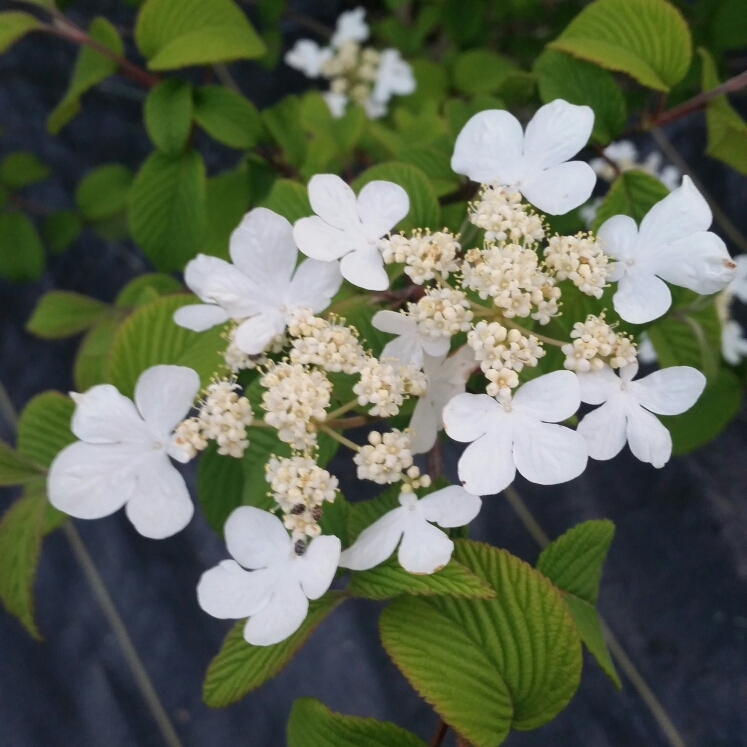
Viburnum plicatum f. tomentosum 'Shasta'
Japanese Snowball 'Shasta'
There are very many different Viburnum, and most are relatively easy to grow. They can be deciduous or evergreen, large, medium or small. Most flower in Spring, the clusters of usually fragrant flowers followed by berries, and often good Autumn leaf colours. Although viburnums prefer slightly acidic or neutral fertile soil, they are not that fussy, and will grow in most soils. 'Shasta' bears dense sprays of pure white lacecap flowers in tiered layers in Spring
Contributed by @alshabibi
-
Full sun to partial shade
-
Occasional watering
-
Full Frost Hardy: 5F (-15°C)
-
Moist and free draining
Common name
Japanese Snowball 'Shasta'
Latin name
Viburnum plicatum f. tomentosum 'Shasta'
type
Flowering Shrub
family
Adoxaceae
ph
5.0 - 7.0 Acid - Neutral
Plant & bloom calendar
-
Best time to plant
-
When the plant will bloom
full grown dimensions
 3.00 M
3.00 M
3.00 M
3.00 M
Viburnum plicatum f. tomentosum 'Shasta'
There are very many different Viburnum, and most are relatively easy to grow. They can be deciduous or evergreen, large, medium or small. Most flower in Spring, the clusters of usually fragrant flowers followed by berries, and often good Autumn leaf colours. Although viburnums prefer slightly acidic or neutral fertile soil, they are not that fussy, and will grow in most soils. 'Shasta' bears dense sprays of pure white lacecap flowers in tiered layers in Spring
Planting Season spring
From Early Spring TO Late Autumn
Plant out pot grown plants in growing position either in the spring or autumn. Prior to planting, incorporate plenty of well rotted manure or garden compost into the soil. Plant Viburnum shrubs at the same depth as they were planted in their pots. Backfill the planting hole and water well to settle the soil.
Propagation by Softwood Cuttings
From Mid Spring TO Early Summer
Take soft wood cuttings in spring to early summer. Cleanly cut up to a 10cm long stems, remove lower leaves and pinch the tip out, dip the stem into rooting hormone, fill a container/pot with suitable compost, make holes around the edge of it and plant the cuttings, water in well, cover with a polythene bag and place somewhere warm, lake the bag off twice a week to air the cuttings. Keep the cuttings moist until well rooted.Harden off when well rooted and pot on into individual pots increasing the airing to let the leaves to develop. Remove rotten, dying or dead cuttings regularly.
Flowering
From Early Spring TO Late Spring
Most viburnums flower in Spring, and some flower in Winter. Many have fragrant flowers. They flower on old wood, so pruning after flowering is important - pruning before flowering could result in no flowering.














